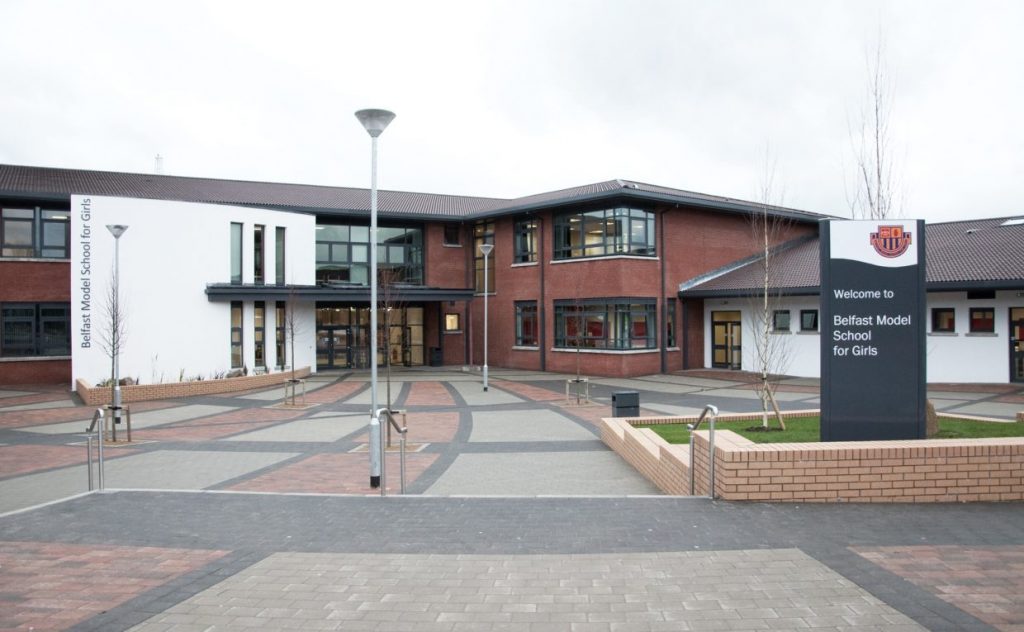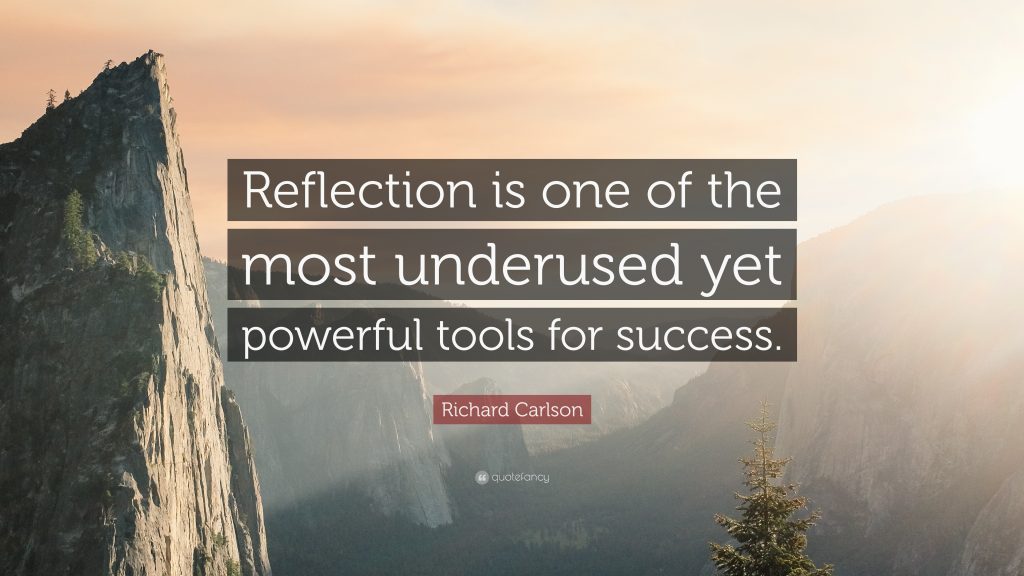
Re-entering the classroom after the Christmas holidays was a more daunting experience than I had anticipated. Over two weeks away from school had me in a state of anxiety and self-consciousness. Would I remember what I had learned? Would I remember the students’ names? Would they remember mine? Not only were these questions circling my brain but I had one more thing to worry about… the result of my P.G.C.E interview. The interview had taken place three days before Christmas and as much as I had tried (and was trying) to be relaxed about it, it was always in the back of my mind, niggling at me like an itch I couldn’t scratch. Thankfully though, my placement mentor and teacher, Ms. Simpson was extremely supportive and encouraging, telling me that from what she had witnessed there was no way they would pass up giving me a place on the course and this helped me immensely. After speaking with her about this in the staff room, we set off for class and those aforementioned questions were something I needn’t have worried about as I settled back into the teaching environment quickly and without issue. Walking into class over the next few weeks was a pleasant experience and the students seemed to be feeling refreshed and ready to learn after their time off which was great to see. To reflect upon my more recent experience of placement and the challenges I have faced, I will be using Borton’s reflective cycle.

I knew my P.G.C.E response wouldn’t be coming until February so I decided to put it on the back burner and enjoy what time I had left in placement, throwing myself into learning even more. “Your views of the profession will be modified by the ‘insider’ experiences as opposed to those of an outsider looking in.” (Jasper 41). What I’ve realised during my time in placement is that, Ms. Simpson is hugely influential regarding the kind of teacher I want to be; no-nonsense, empathetic, and passionate about the subject. These next few weeks at placement were amazing, especially because the students were studying and performing scenes from one of my favourite plays, “Tea in a China Cup” by Christina Reid. When Ms. Simpson informed me of this I was very excited which became clear because the enthusiasm I had for the play shone through in lessons and contrary to a few months prior, I felt comfortable and confident in leading discussions with the students and encouraging them to show me their interpretation of the given scenes. What was even more rewarding was that it became clear that they trusted me and felt at ease with me when it came to asking questions and for direction and then they were genuinely excited to perform what they had prepared. In gaining this experience, it only became more apparent to me how much I wanted to be a teacher because I was catching glimpses of what my future was going to look like.
A man who is a master of patience is master of everything else
George Savile
The descent into disruption
I have questioned my ability to become a teacher on several occasions but I do think this is a positive thing because it only makes me more determined to learn and prove that little voice in my head wrong. I have faced challenges in placement before and overcome them and due to that, I have come to feel more self-assured in my choice of profession and what I have to offer it. In saying that, nothing could have prepared me for what was to come. It was a normal Tuesday in placement and it was going well until the fifth period of the day when a Year 10 class arrived and the atmosphere changed. This class had presented challenges before and as soon as they came into the room, I could sense this lesson was not going to be an easy one. The plan was to hand out a scene from “Tea in a China Cup”, give them a synopsis of the play along with some history about it, and then split them up into groups so they could work on the scene, however some of the students had other ideas. Two particularly disruptive students began by having a conversation whilst the task was being explained and when asked to be quiet, they ignored Ms. Simpson and carried on. They were then told to stop again and warned that if it continued throughout the lesson, they would be removed from class but once again they refused and were separated to opposite sides of the room. With that problem resolved, the initial plan was carried out and the students got into groups. One of the aforementioned students asked to leave to use the bathroom and the request was denied because school rules state they are not permitted to use the bathroom during the fifth period due to their lunch being directly after. This caused the student to begin arguing with the teacher, raising her voice and being blatantly disrespectful. What followed was others in the class joining in and questioning why certain things were not allowed and they continued to badger the teacher with bold statements about their “rights” until the end of class.
Without reflection, we go blindly on our way
In looking back at this incident now, I realise that I could have reacted differently because the reality of it is I sat back and watched the exchange happen. I think this is due to the fact I felt very uncomfortable and quite frankly was shocked by the way these students were speaking to Ms. Simpson. I now know that what I should have done was to go to the students who were showing some interest in the play and taken them to a different part of the room and engaged with them. This would have changed the lesson for them in that it wouldn’t have felt overshadowed by the disruption but rather they would have been removed from the situation and still able to learn. What did strike me at this moment though, was Ms. Simpson’s patience and calm tone with the students as they continued to be rude to her. It showed me that she was attempting to understand and empathize with the students whilst also maintaining control of the situation. “The place of emotional intelligence is as important in teacher education as it is in student learning” (Dymoke and Harrison 17). When the bell rang and the students left, Ms. Simpson sent an email to their head of year explaining what had just occurred, and the conclusion was drawn that the two students who had initially caused the disruption would not attend that class for the next couple of weeks. I went home that evening and read an article on managing disrespect in the classroom to try to help further my knowledge and understanding and to help ensure that I would be able to cope with similar situations in the future. What I learned is that there is no “magic bullet” (Watson) and that there are different ways to assess and manage students’ behaviour. This was extremely helpful and reassuring as it stopped me from assuming there is always one right way to do things. From what I have witnessed since the two students have not been in attendance is that the class has been calmer and more settled. They have also been answering questions, giving thoughts and feedback, and participating more in the lesson overall.

“To cultivate good teaching we must begin with ourselves and learn to identify and reflect on what we believe, where these beliefs come from, and how they impact who we are as teachers.” (Goethals et al 177). When I reflect over the last few weeks, as much as I have thoroughly enjoyed most of it, I cannot help but feel frustrated regarding the incident that happened during that one bad lesson and to an extent, taking it personally. This is not because anything negative was directed toward me but I think it’s due to the fact I still haven’t been able to grasp why some students think that it’s okay to speak to their teacher with such disrespect and disdain. I have always admired teachers for what they do, inside and outside the classroom and perhaps I am too quick to assume that everyone does or should feel the same way about the respect that should be given to them. This, once again, had me questioning whether or not I was fully capable of entering into the profession. To make matters worse, I received a response from the P.G.C.E course and was informed that I had been waitlisted. I was devastated. I couldn’t understand what I had done wrong in my interview as these were never something I struggled with before, always getting any job I applied for previously. I started to go over every detail in my head and try to work out what I could have said or done differently. This did not help that seed of doubt that was already planted in my mind but after a few days of feeling sorry for myself, I decided to look on the bright side.
I look to the future because that is where I am going to spend the rest of my life
George Burns
What this has allowed for is one more year of gaining first-hand experience in a classroom. I had previously spoken with my former drama teacher from Belfast Royal Academy (B.R.A.) who encouraged me that, should my plans for doing the P.G.C.E course not work out for any reason, I should apply for classroom assistant opportunities which is exactly what I am going to do. I am continuing placement in the Belfast Model School for Girls until the end of their school year and come summer, once I have graduated from Queen’s, I will be applying for classroom assistant jobs in secondary and grammar schools in Belfast.
References
Dymoke. S & Harrison. J (2008) Reflective Teaching and Learning. Los Angeles; London: SAGE. Pp. 17
Goethals. M, Howard. Rose A., Sanders. M (2004) Student Teaching: A Process Approach to Reflective Practice. Upper Saddle River, N.J. : Pearson/Merrill/Prentice Hall. Pp. 177
Jasper, M. (2013) Beginning reflective practice. Melbourne & London: Cengage Learning. Pp. 41
Watson. A, Truth for Teachers: How to respond to rude, disrespectful student attitudes. (May 2017) https://truthforteachers.com/truth-for-teachers-podcast/respond-rude-disrespectful-student-attitudes/ [Accessed 6 February 2024]